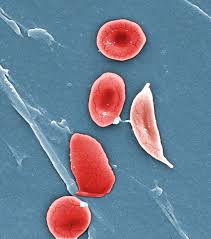CRISPR and another genetic strategy fix cell defects in two common blood disorders
By Jocelyn Kaiser,
Science
| 12. 05. 2020
It is a double milestone: new evidence that cures are possible for many people born with sickle cell disease and another serious blood disorder, beta-thalassemia, and a first for the genome editor CRISPR.
Today in The New England Journal of Medicine (NEJM) and tomorrow at the American Society of Hematology (ASH) meeting, teams report that two strategies for directly fixing malfunctioning blood cells have dramatically improved the health of a handful of people with these genetic diseases. One relies on CRISPR, marking the first inherited disease treated with the powerful tool created just 8 years ago. And both treatments are among a wave of genetic strategies poised to widely expand who can be freed of the two conditions. The only current cure, a bone marrow transplant, is risky, and appropriately matched donors are often scarce.
The novel genetic treatments have the same safety issues as bone marrow transplants for now, and may also be extraordinarily expensive, but there is hope those risks can be eliminated and the costs pared down. “This is an amazing time, and it’s exciting because it’s...
Related Articles
By Scott Solomon, The MIT Press Reader | 02.12.2026
Chris Mason is a man in a hurry.
“Sometimes walking from the subway to the lab takes too long, so I’ll start running,” he told me over breakfast at a bistro near his home in Brooklyn on a crisp...
By Diaa Hadid and Shweta Desai, NPR | 01.29.2026
MUMBRA, India — The afternoon sun shines on the woman in a commuter-town café, highlighting her almond-shaped eyes and pale skin, a look often sought after by couples who need an egg to have a baby.
"I have good eggs,"...
By George Janes, BioNews | 01.12.2026
A heart attack patient has become the first person to be treated in a clinical trial of an experimental gene therapy, which aims to strengthen blood vessels after coronary bypass surgery.
Coronary artery bypass surgery is performed to treat...
By Staff, ScienceDaily | 01.05.2026
Scientists at UNSW Sydney have developed a new form of CRISPR technology that could make gene therapy safer while also resolving a decades-long debate about how genes are switched off. The research shows that small chemical markers attached to DNA
...




